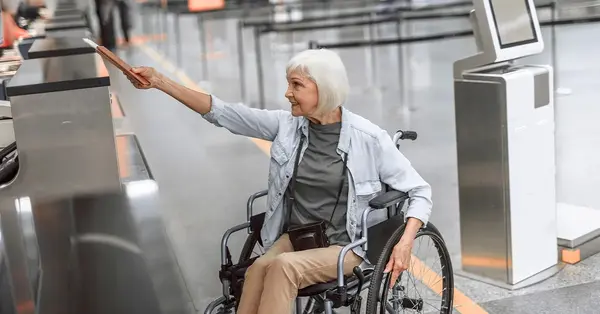You are viewing 2 of your 2 free articles
Most European travellers trying to cut costs amid high cost of living and inflation
More than half of Europeans (54%) believe they will have more money to spend on travel in 2024 than they did last year, despite ongoing cost of living pressures.
This compares to just 11% who say they will have less to spend, according to new research by Accor.
However, the vast majority (87%) are taking measures to reduce costs where they can as a result of inflation and a heightened cost of living.
From opting for more affordable accommodation (27%) to reducing their spending money (27%), cost-saving measures may shape travel offerings in the year ahead, the study suggested.
Just 12% of respondents are influenced by destinations they have seen on social media – the same as those who are influenced by advice from a travel agent.
The report, based on research among 8,000 travellers from across seven European countries including the UK, reveals that the number of overseas leisure trips people expect to take is slightly up over last year, and international ‘workation’ or ‘bleisure’ trips – trips that combine both business and leisure – will also see an increase.
One in five European travellers (19%) expects to take at least one trip combining work and play in 2024 due to more flexible working patterns,
Southern Europe still tops of the list for destinations, with one in four (23%) planning a trip to Spain this year, followed by Italy (18%), France (16%), Portugal and Greece (13%).
Outside Europe, 16% of European travellers intend to travel to North or Central America this year, with the same proportion planning a trip to Asia.
Climate change is also partially contributing to peak season avoidance. One in three respondents across Europe (32%) say they will purposefully take a holiday outside peak summer to reduce costs; while one in five (19%) expects to do so to avoid the risk of heat waves, such as those seen last summer in southern Europe.
Some warm weather destinations may see a longer tourism season as a result.
Seven in ten travellers (71%) say sustainability is important to their travel decisions. Of the European countries sampled, travellers in Italy are the most focused on green travel, with 82% claiming that having sustainable options is important to their decision-making process.
This is followed by Spain (78%) and Poland (77%), with British travellers lagging behind (61%).
Three in four travellers (77%) say climate concerns will have an actual impact on their travel or booking behaviour. Actions people will take include travelling less frequently (11%); flying less (14%); and actively seeking sustainable accommodation providers or tour operators (10%).
However, despite their good intentions, travellers acknowledge that there are obstacles preventing them from making sustainable travel choices, including conflicting cost pressures, cited by 38% of respondents, and a perceived lack of information (23%).
Travellers take recommendations from friends and family first about where to go on holiday, with 35% saying this influences their plans, followed by 29% who are swayed by online reviews on sites such as TripAdvisor or hotel websites.
Trusted operators and brands are vital to people’s choices, with 17% citing them as an important factor. Being a member of the loyalty programme of a particular accommodation provider or tour operator is also crucial for 6% of respondents.
One in six (16%) are influenced by destinations they have seen on TV programmes or films.
Accor Europe & North Africa premium, midscale and economy chief executive Patrick Mendes said: “Despite ongoing macro-economic and geopolitical challenges, 2024 looks set to be a strong year for European travel as consumers prioritise it above other forms of discretionary spend.
“This report reinforces several overarching themes, none more important than the climate crisis.
“Consumers care about how travel businesses are addressing sustainability issues, and this will only become more important to their travel choices over time.
“The study highlights other crucial long-term trends. Consumer focus on wellness is here to stay. ‘Bleisure’ is here to stay. Travel businesses must have a strategy to cater to these evolving needs, capture this significant demand and stay ahead of the competition.”


















